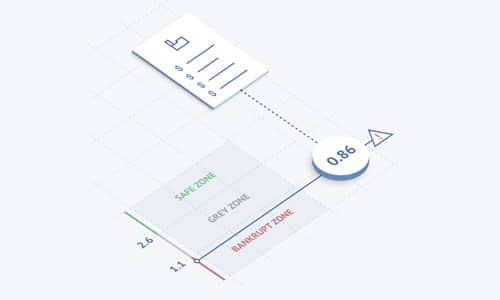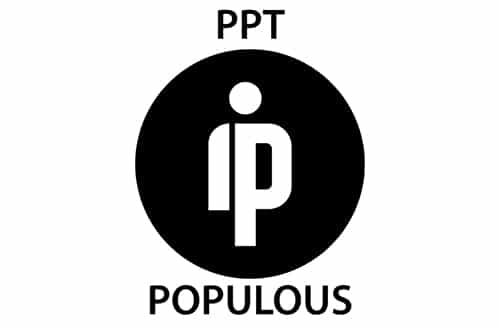- Populous is an interesting project that is taking on a little known sector of the small business world. The Populous platform is a peer-to-peer (P2P) blockchain project intended to make it easier and more efficient for small and medium enterprises (SMEs) to participate in the financing of invoices.
Part of the problem being tackled by the Populous project is the cash-flow difficulties experienced by some SMEs. According to research done in 2017 by Bacs Payment Schemes, late invoice payments in the U.K. cost SMEs over £2 billion a year in fees and missed opportunities.
Invoice financing allows businesses to sell their outstanding invoices for a discount and receive needed cash now. The buyer of the invoice becomes the owner of the receivable and gets their money back plus the premium when the customer pays the invoice.
Until now the process of invoice financing has been mostly local, but by putting it on the blockchain invoice financing can be spread globally, creating a far more efficient and improved system.
How Does Populous Work?
Populous has created a P2P auction system that brings buyers and sellers together to exchange invoices using smart contracts. Those looking to sell invoices must first register their company. After registration the account remains on hold until it can be reviewed and approved by a Populous administrator.
 Overview of Populous Function. Soure: Populous Business Plan
Overview of Populous Function. Soure: Populous Business PlanOnce your account is approved you’re free to submit your first invoice and a minimum sales amount. This step also requires administrator approval.
XBRL (eXstensible Business Reporting Language)
Populous has created a method for analyzing the credit risk of invoices by applying the Altman Z-score on real time XBRL data. This XBRL data is publically available and includes information about the business such as creditors due in the coming year, cash on hand, and the value of current debts.
Altman Z-score Formula
The Altman Z-score formula is a financial modeling tool used to evaluate three risk factors:
- The probability of bankruptcy within the next 2 years
- The probability of defaulting on obligations
- A control measure for financial distress
 Altman ZScore
Altman ZScoreWith this Z-score and the XBRL data the Populous team has created a credit rating system that works on the blockchain and doesn’t require the traditional involvement of third-party credit ratings agencies. This saves both time and money.
Populous uses these measures to evaluate companies that have applied for acceptance into the invoice financing platform, and it can help filter out those businesses that won’t be a good fit for the platform, or who could present undue risk for buyers on the platform. All decisions are objectively determined by the Altman formula credit score that is generated, and this guides the administrator to accept of reject applications.
Populous Invoice Auctions
Once an invoice is approved the auction for it begins immediately and it lasts for 24 hours. Auctions can end in three ways:
- The auction completes successfully, with a bid matching the sales goal being made in the 24 hour window,
- The full 24 hours pass and there are no bids that meet the sales goal. If this occurs the seller can choose to restart the auction, cancel the auction, or simply accept the best bid that was made.
- The seller terminates the auction early. When an auction is terminated by the seller before the 24 hours has elapsed they can choose to cancel it completely, or to accept the best bid that has been made up to that point.
A successful auction concludes with the seller of the invoice receiving funds in the form of Pokens, one of the two digital currencies within the Populous platform. The Poken can then be exchanged for fiat currencies or for other cryptocurrencies.
Any buyers who placed losing bids will have their funds returned to them in full. The same is true for cancelled auctions, with buyers having their funds returned to them once the auction is cancelled.
Invoice Buyers
It isn’t just sellers who need approval before using the Populous platform. Buyers also need to receive administrator approval before they can begin making bids on invoices. This approval is based on the Know-Your-Customer information that must be submitted if making purchases with fiat currency.
To avoid this to some degree buyers can use cryptocurrencies for their purchases. When using crypto there are no KYC requirements and buyers are able to remain anonymous.
Poken Currency vs PPT
Some people get confused over the cryptocurrencies associated with Populous, because unlike most blockchain platforms, Populous uses two different tokens. One is an internal currency, and the other is used primarily as an investment vehicle.
Poken Currency
The Poken is and ERC-20 token and is the internal currency used on the Populous platform Each Poken is pegged to one unit of fiat currency (e.g. in the U.K. 1 GBP Poken = 1 GBP).
The Poken used will depend on the local currency, but initially all purchased Pokens will be converted to GBP Pokens based on the prevailing exchange rate from the London Stock Exchange. You can also purchase Pokens using Bitcoin. If you wish to store Poken they can be held in any ERC-20 wallet.
PPT (Populous Platform Token)
Populous distributed 36 million PPT tokens in an ICO in June 2017, raising $10 million. There will only ever be 53 million PPT created and in circulation. PPT can be held and can also be used to create liquidity on the platform by investing in invoices.
If you choose to invest in invoices using PPT the tokens are used as collateral and you receive Pokens in exchange that are used to purchase the invoice. Once the invoice is paid by the creditor you receive your profit in Pokens and a return of your PPT collateral.
Populous Team
The Populous project is led by Stephen Williams, who previously founded Olympus Research, a company that focused on data and analytics for businesses. The headquarters for Populous is in London.
 Populous Team Members. Soure: populous.world
Populous Team Members. Soure: populous.worldPopulous is unique in the blockchain space and has no blockchain competitors. Where the project will struggle is in convincing customers to switch from the traditional invoice financing platforms such as MarketInvoice.
Invoice sellers have a very clear incentive to make the switch to Populous – it is less expensive. The in-house credit rating should help buyers migrate to Populous. The system overall is a vast improvement over the current invoice financing system in place, and once buyers and sellers gain trust in the platform it should be able to grow rapidly.
PPT Trading
The PPT ICO was completed on June 24, 2017 and raised $10 million as the team sold 36 million PPT tokens at 0.0011 ETH per 1 PPT. Subsequently price remained range bound between $2 and $4 until the late 2017 rally in the overall cryptocurrency markets, which took PPT to an all-time high of $68.91 in January 2018.
Since then it has retreated along with the overall cryptocurrency markets, and currently trades just above $8 as of June 12, 2018 – almost 1 year from the ICO.
The Populous beta is expected in the fourth quarter of 2018, and this should give PPT a boost in price. There was also a PXT token that was airdropped to holders of PPT as of November 4, 2017.
The PXT token is meant for buying advanced services on the new Populous Data Platform, which is also to be released in the fourth quarter of 2018. It will provide businesses with credit reports and advanced credit analysis on companies.
Where To Buy & Store PPT
 Image via Fotolia
Image via FotoliaPPT can be purchased using Bitcoin and Ether at Binance, or by using Bitcoin, Ethereum or USD Tether from OKEx. It is also available on some smaller exchanges, but over 90% of the trading volume is on those two exchanges. Currently it is not possible to purchase PPT using fiat currencies.
Since PPT is an ERC-20 token it’s possible to store it (and Pokens or PXT) in any ERC-20 compatible wallet. MyEtherWallet and MetaMask are two popular web-based wallets, or for those more concerned with security a hardware wallet such as the Ledger Nano S or Trezor can be used.
We’re also expecting Populous to release their own wallet, probably along with the release of the beta platform.
Conclusion
Populous is a fairly young project that is tackling a fairly boring financial objective.
That said, it is also a lucrative space, and one that has no competition in the blockchain world. While the team has little blockchain experience when compared with other projects, they do have a solid business plan, and have already begun forming strategic partnerships that will help grow the platform. The beta release will be huge for this project since it will give potential investors and users the chance to finally test the platform and see how it performs.
It’s interesting to note that even though this project appears to be focused on a very tight niche, the PPT token has a far larger market cap (over $300 million as of June 12, 2018) than other projects that have a much broader focus and larger potential audience. The inclusion of the Populous Data Platform seems to only add more strength to the project, and it should help increase the market reach of Populous.
One thing I don’t like about the project is how quiet the team has been. They’ve said they don’t want to release any information too early, but really there has been very little information at all, making it difficult to know what kind of progress the team might be making. I can only hope this silence will change once the beta product has been released.



